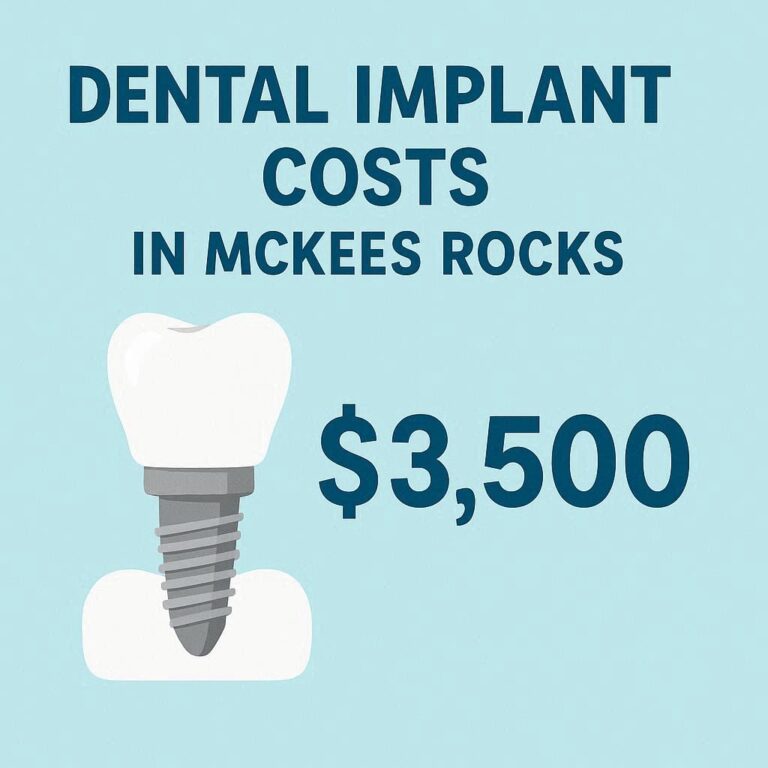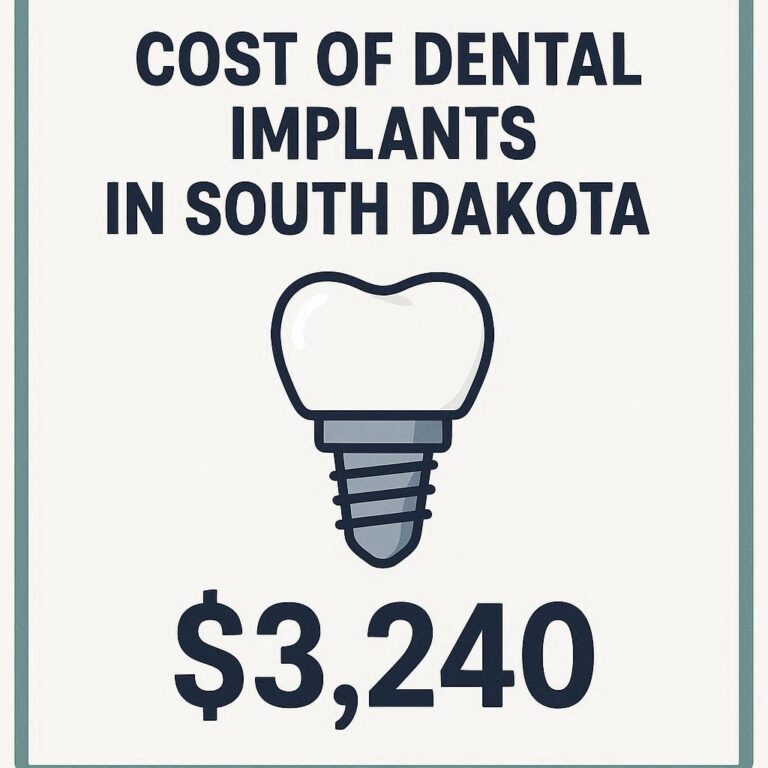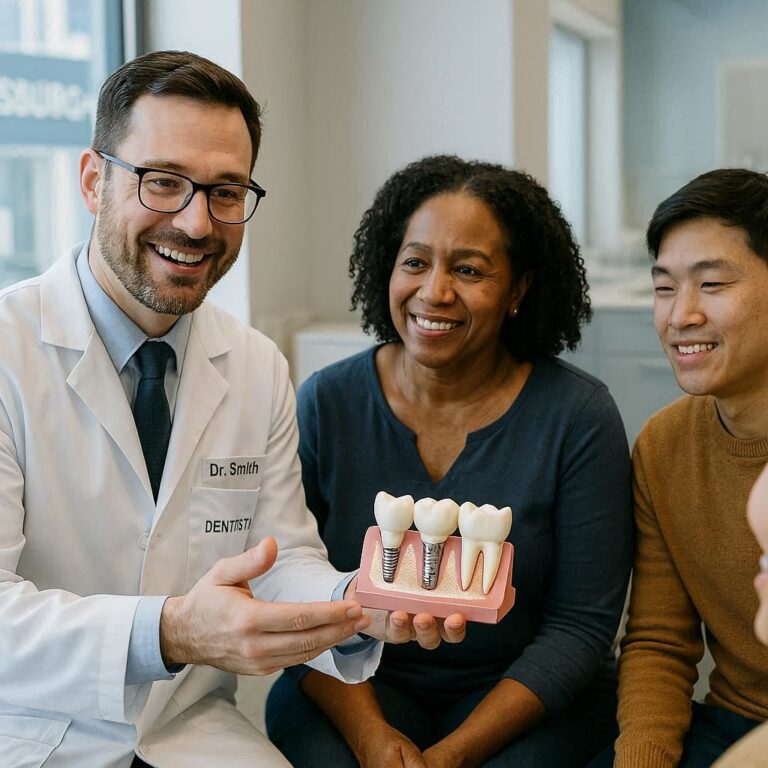Dental Implant Costs for Seniors
As we age, maintaining oral health becomes increasingly important, not just for aesthetics but for overall well-being. For seniors, tooth loss can significantly impact quality of life, affecting nutrition, speech, and self-confidence. Dental implants have emerged as a leading solution for replacing missing teeth, offering durability, functionality, and a natural appearance. However, the cost of dental implants can be a significant concern, especially for seniors on fixed incomes.
This article delves into the intricacies of dental implant costs for seniors, exploring the factors that influence pricing, average costs, insurance coverage, and cost-saving strategies. By the end of this guide, you’ll have a comprehensive understanding of what to expect when considering dental implants and how to make this investment more affordable.

2. Understanding Dental Implants
What Are Dental Implants?
Dental implants are artificial tooth roots made of biocompatible materials like titanium. They are surgically placed into the jawbone to support replacement teeth, such as crowns, bridges, or dentures. Unlike dentures, which are removable, implants are a permanent solution that mimics the look and function of natural teeth.
Types of Dental Implants
- Endosteal Implants: The most common type, placed directly into the jawbone.
- Subperiosteal Implants: Placed under the gum but above the jawbone, suitable for patients with insufficient bone density.
- Mini Implants: Smaller in size, often used for stabilizing lower dentures.
Benefits of Dental Implants for Seniors
- Improved Oral Health: Implants prevent bone loss and preserve facial structure.
- Enhanced Comfort: Unlike dentures, implants don’t slip or cause discomfort.
- Better Nutrition: Seniors can enjoy a wider variety of foods, improving overall health.
- Longevity: With proper care, implants can last a lifetime.
3. Factors Influencing Dental Implant Costs
Material Costs
The type of material used for the implant and crown significantly impacts the price. Titanium implants are the most common, but zirconia implants are gaining popularity due to their aesthetic appeal.
Surgical Fees
The complexity of the procedure, including the need for anesthesia and the surgeon’s expertise, affects the overall cost.
Geographic Location
Dental implant costs vary widely depending on the region. Urban areas with higher living costs tend to have more expensive dental services.
Dentist’s Expertise
Experienced implantologists may charge higher fees, but their expertise often leads to better outcomes.
Additional Procedures
Many seniors require preparatory procedures like bone grafts or sinus lifts, which can add to the total cost.
4. Average Cost of Dental Implants for Seniors
Single Tooth Implants
The cost of a single tooth implant typically ranges from 3,000to3,000to6,000, including the implant, abutment, and crown.
Full Mouth Implants
Full mouth implants can cost anywhere from 20,000to20,000to50,000, depending on the number of implants and the type of restoration.
All-on-4 Implants
All-on-4 implants, which use four implants to support a full arch of teeth, cost between 15,000and15,000and30,000 per arch.
| Procedure | Average Cost Range |
|---|---|
| Single Tooth Implant | 3,000−3,000−6,000 |
| Full Mouth Implants | 20,000−20,000−50,000 |
| All-on-4 Implants | 15,000−15,000−30,000 |
5. Insurance Coverage and Financing Options
Medicare and Medicaid
Medicare does not typically cover dental implants, but some Medicare Advantage plans may offer partial coverage. Medicaid coverage varies by state.
Dental Insurance
Many dental insurance plans cover a portion of implant costs, but coverage limits and exclusions often apply.
Payment Plans and Financing
Many dental offices offer payment plans or work with third-party financing companies to make implants more affordable.
6. Cost-Saving Tips for Seniors
Dental Schools and Clinics
Dental schools often provide discounted services as part of their training programs.
Dental Tourism
Traveling to countries with lower dental costs can save money, but it’s essential to research the quality of care.
Discount Plans
Dental discount plans offer reduced rates on implants and other procedures for an annual fee.
7. Risks and Considerations
Health Conditions Affecting Implant Success
Conditions like diabetes and osteoporosis can impact the success of dental implants.
Long-Term Maintenance Costs
While implants are durable, they require regular check-ups and maintenance, which can add to the overall cost.
8. Comparing Dental Implants to Other Options
Dentures
Dentures are more affordable upfront but may require frequent adjustments and replacements.
Dental Bridges
Bridges are less expensive than implants but may damage adjacent teeth and don’t prevent bone loss.
9. Frequently Asked Questions (FAQs)
Q: Are dental implants worth the cost for seniors?
A: Yes, dental implants offer long-term benefits that often outweigh the initial cost.
Q: Can I get dental implants if I have bone loss?
A: Bone grafts can often make implants possible for seniors with bone loss.
Q: How long do dental implants last?
A: With proper care, implants can last a lifetime.
10. Conclusion
Dental implants are a valuable investment for seniors seeking to restore their smile and improve their quality of life. While the costs can be high, understanding the factors that influence pricing and exploring financing options can make this treatment more accessible. By weighing the benefits against the costs and considering alternative solutions, seniors can make informed decisions about their oral health.
11. Additional Resources
- American Academy of Implant Dentistry
- National Institute of Dental and Craniofacial Research
- Dental Implant Cost Guide


